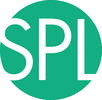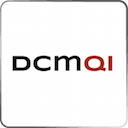Documentation/Nightly/Extensions/DCMQI
|
For the latest Slicer documentation, visit the read-the-docs. |
Introduction and Acknowledgements
|
Extension: dcmqi | |||||||
|
Extension Description
This extension contains the DICOM for Quantitative Imaging (dcmqi) library that provides tools and API for conversions of the quantitative image analysis results (segmentations, measurements, parametric maps) into DICOM format and back.
Use Cases
Tutorials
Usage overview and documentation for the dcmqi library are available at https://github.com/QIICR/dcmqi#introduction
Panels and their use
The dcmqi extension doesn't provide a GUI, it's intended to be used at the library level by other modules.
Similar Extensions
References
- Quantitative Image Informatics for Cancer Research (QIICR)
- Herz C, Fillion-Robin JC, Onken M, Riesmeier J, Lasso A, Pinter C, Fichtinger G, Pieper S, Clunie D, Kikinis R, Fedorov A. (2017) dcmqi: an open source library for standardized communication of quantitative image analysis results using DICOM. Cancer Research (in press) [PDF]
- Fedorov A, Clunie D, Ulrich E, Bauer C, Wahle A, Brown B, Onken M, Riesmeier J, Pieper S, Kikinis R, Buatti J, Beichel RR. (2016) DICOM for quantitative imaging biomarker development: a standards based approach to sharing clinical data and structured PET/CT analysis results in head and neck cancer research. PeerJ 4:e2057 https://doi.org/10.7717/peerj.2057
Information for Developers
| Section under construction. |



